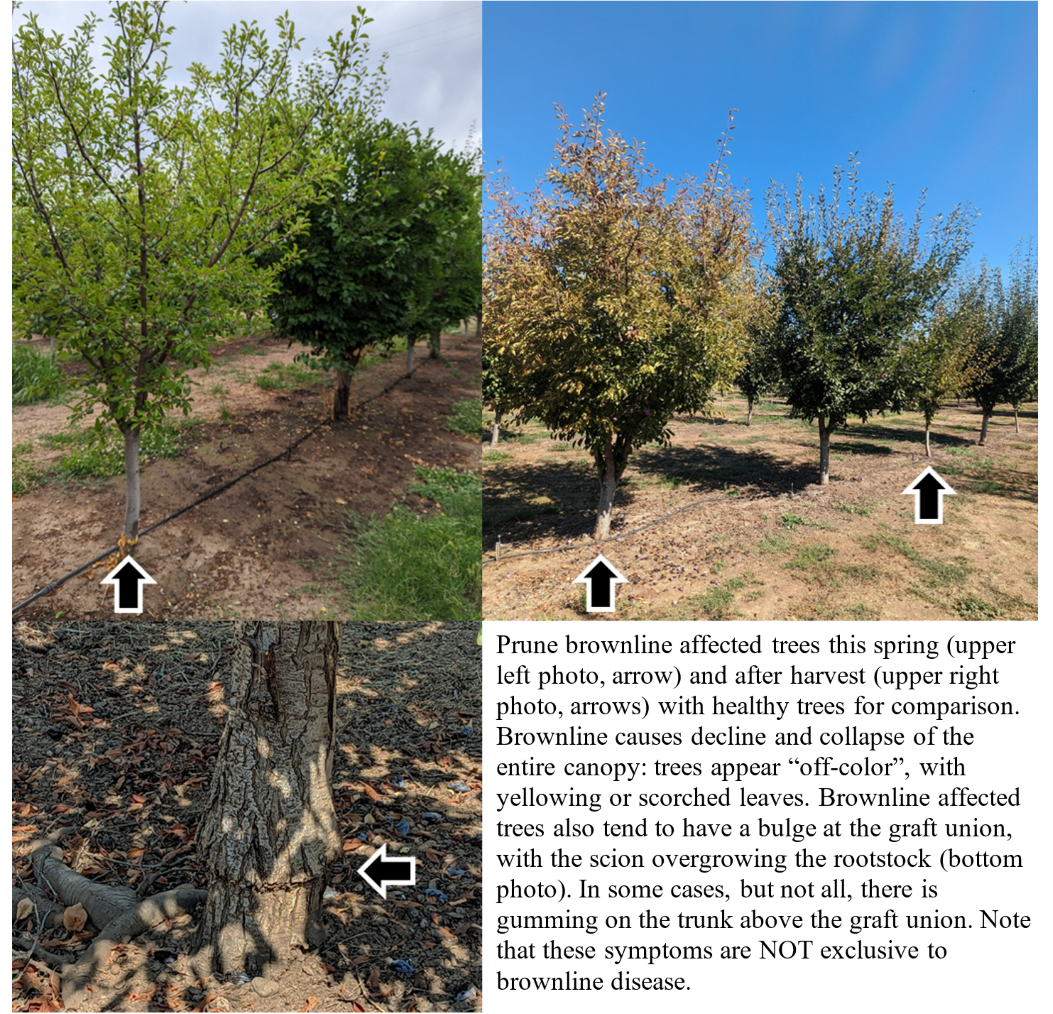Jaime Ott, UCCE Tehama, Shasta, Glenn, and Butte Counties
Since this spring (2023), we have found prune brownline disease (brownline) in three Sac Valley orchards on Krymsk 86 rootstock. Symptoms include tree decline and rapid collapse of the entire canopy. If you peel the bark away, a distinct line of brown, dead tissue will be visible at the graft union. If you notice these symptoms in your orchard, please reach out to your local farm advisor so we can sample for confirmation. Over the last several decades brownline has been considered a very rare disease in prunes, and we want to understand the extent of current infections.


The Details
Prune brownline was first described in the late ‘70s affecting prune trees on peach (lovell, nemaguard) or Myrobalan plum (myro seedling, 29C) rootstocks. At that time, there were many orchards affected, especially in the south Sacramento Valley. Since then, it has only been reported very rarely.
The disease is caused by Tomato Ringspot Virus (ToRSV), which is transmitted to the tree by dagger nematodes (Xiphinema species). The virus infects the rootstock, moving up the trunk toward the graft union. When it reaches the graft union, the scion reacts with a hypersensitive response, killing the cells in contact with the infected rootstock tissue. This results in the line of dead tissue at the graft union, which disrupts the transport of water and eventually kills the tree.
From previous research, we know that trees on Marianna 2624 are resistant to prune brownline disease: our best recommendation currently is to use that as a rootstock for replants if you have confirmed brownline in your orchard. Trees on lovell, nemaguard, myro seedling, and 29C are all susceptible to brownline, and our in-orchard observations add Krymsk 86 to that list. We plan to conduct testing to determine the susceptibility of other modern rootstock options, such as Atlas, Viking, and M40.
If you have questions about prune brownline disease or think you might have the disease in your orchard, please reach out to njott@ucanr.edu.


Leave a Reply